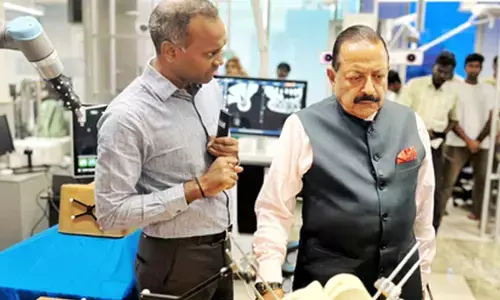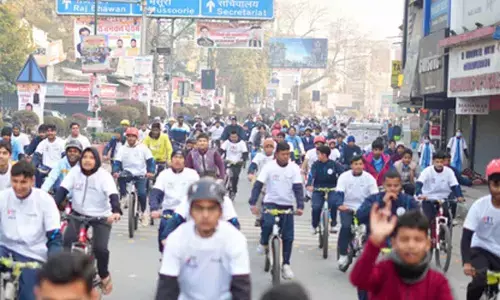Demystifying contraception: A Guide to the rising trends

In recent years, family planning has revolutionised, and India is no exception.
In recent years, family planning has revolutionised, and India is no exception. Contraception is no longer associated with limited options and societal stigma. Today, we witness a plethora of contraceptive methods, empowered individuals, and a greater awareness of reproductive rights.
1. Long-Acting Reversible Contraception (LARC) Demand
LARCs, such as IUDs and implants, are becoming more popular because of their ease of use and long-term effectiveness. These approaches provide long-term protection, reducing the need for daily or monthly reminders. This is especially advantageous for women who lead busy lives or have restricted access to healthcare facilities. Furthermore, LARCs are highly efficient in avoiding unplanned pregnancies, making them a trustworthy option for couples seeking long-term family planning.
2. Growing Acceptance of Male Contraception
Male contraception is progressively gaining traction, even though female-centric approaches have long dominated the field. Condoms, which have long been used to guard against sexually transmitted infections (STIs), are now being recognised for their contraceptive properties. Furthermore, vasectomy, a permanent medical procedure for men, is becoming more popular. This trend reflects a greater recognition of couples’ shared responsibilities for family planning.
3. The Evolution of Telemedicine and Digital Platforms:
Technology is playing a growing role in boosting access to contraception. Telemedicine services enable people to contact doctors online, discuss contraception alternatives, and acquire medications from a distance. This is especially beneficial for folks living in remote areas or facing mobility challenges. Furthermore, internet platforms provide consumers with credible information about various contraceptive techniques, empowering them to make informed decisions.
4. Expanding the method mix
The days of limited contraceptive options are numbered. Indian women now have a broader range of options to pick from, catering to a variety of demands and interests. Among the options are:
l Hormonal methods: Oral contraceptives remain popular due to their simplicity and dependability. Injectables and implants, for example, offer long-acting, reversible contraception with minimal user intervention.
l Barrier Methods: Condoms continue to play an important role in offering dual protection against pregnancy and sexually transmitted diseases (STIs). Material and design advancements have made them more comfortable and user-friendly.
l Intrauterine devices (IUDs): These long-lasting, very effective procedures are becoming increasingly popular, particularly among women who have reached their desired family size.
l Natural family planning: Natural family planning is recognising and tracking the menstrual cycle’s viable window to avoid unprotected intercourse during peak ovulation days.
l Surgical methods: Some couples seeking permanent contraception prefer sterilisation procedures such as vasectomy or reversible procedures such as tubal ligation.
5. Increased Interest in Natural Family Planning
Natural family planning approaches, such as the rhythm method and basal body temperature monitoring, are gaining popularity. To determine fertile and non-fertile days, these methods rely on understanding individual fertility cycles. Natural family planning, while less successful than hormonal or barrier techniques, appeals to couples seeking a more natural approach to contraception.
6. Affordability and accessibility:
Government efforts such as the National Family Health Mission have played an important role in making health care more accessible and affordable. Various contraceptive methods are supplied at reduced or even no cost through a network of public health clinics and accredited social health activists (ASHA). Furthermore, private healthcare providers provide a broader range of services, catering to a variety of requirements and interests.
Here are some helpful suggestions:
l Begin talking about contraception with your family and friends. Open communication is critical for reducing stigma and promoting informed decisions.
l Do not be afraid to ask your doctor about contraception. They are here to give you with correct information and to assist you with your reproductive health requirements.
l Make use of online resources and learning tools. There are numerous trustworthy resources accessible to learn more about various contraceptive methods.
l Advocate for cost-effective and readily available contraception. Everyone has the right to make informed decisions about their reproductive health.
We can create a world where everyone has the power to manage their fertility and accomplish their reproductive objectives by embracing emerging contraceptive trends and working together to address existing restrictions. Remember that responsible family planning is about empowering individuals to live healthy and fulfilled lives, not merely preventing undesired pregnancies.
(The author is a , Lead Consultant - Obstetrics & Gynaecology, Aster CMI Hospital, Bangalore)








